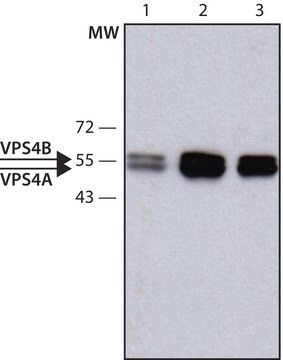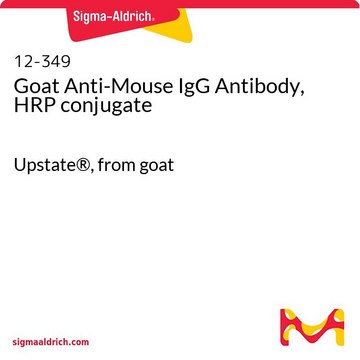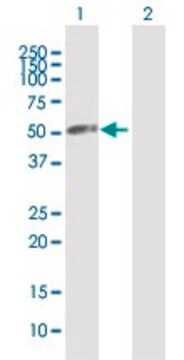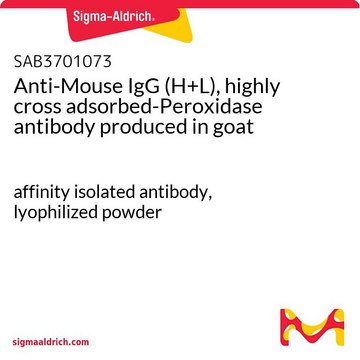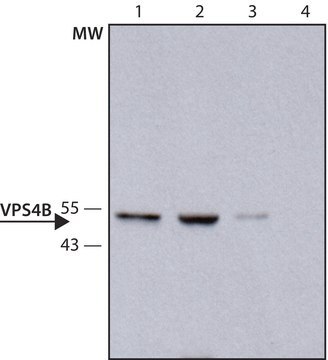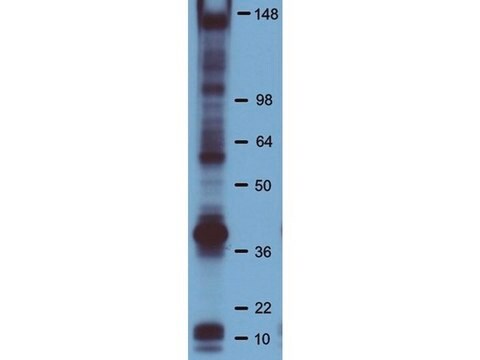SAB4200215
Anti-VPS4A antibody, Mouse monoclonal
clone VPS4-110, purified from hybridoma cell culture
Sinonimo/i:
Anti-SKD1, SKD1A, SKD2, VPS4-1, Anti-Vacuolar protein sorting factor 4A, Anti-hVPS4
About This Item
Prodotti consigliati
Origine biologica
mouse
Coniugato
unconjugated
Forma dell’anticorpo
purified from hybridoma cell culture
Tipo di anticorpo
primary antibodies
Clone
VPS4-110, monoclonal
Forma fisica
buffered aqueous solution
PM
antigen ~50 kDa
Reattività contro le specie
mouse, canine, bovine, human, rat
Concentrazione
~1.0 mg/mL
tecniche
immunoprecipitation (IP): suitable
western blot: 1-2 μg/mL using whole extracts of mouse 3T3 or human HEK-293 cells.
Isotipo
IgG1
N° accesso UniProt
Condizioni di spedizione
dry ice
Temperatura di conservazione
−20°C
modifica post-traduzionali bersaglio
unmodified
Informazioni sul gene
human ... VPS4A(27183)
mouse ... Vps4a(116733)
rat ... Vps4a(246772)
Descrizione generale
Applicazioni
- immunoblotting
- immunoprecipitation
- immunolabelling
Azioni biochim/fisiol
Stato fisico
Esclusione di responsabilità
Non trovi il prodotto giusto?
Prova il nostro Motore di ricerca dei prodotti.
Codice della classe di stoccaggio
12 - Non Combustible Liquids
Classe di pericolosità dell'acqua (WGK)
WGK 1
Punto d’infiammabilità (°F)
Not applicable
Punto d’infiammabilità (°C)
Not applicable
Certificati d'analisi (COA)
Cerca il Certificati d'analisi (COA) digitando il numero di lotto/batch corrispondente. I numeri di lotto o di batch sono stampati sull'etichetta dei prodotti dopo la parola ‘Lotto’ o ‘Batch’.
Possiedi già questo prodotto?
I documenti relativi ai prodotti acquistati recentemente sono disponibili nell’Archivio dei documenti.
Il team dei nostri ricercatori vanta grande esperienza in tutte le aree della ricerca quali Life Science, scienza dei materiali, sintesi chimica, cromatografia, discipline analitiche, ecc..
Contatta l'Assistenza Tecnica.
